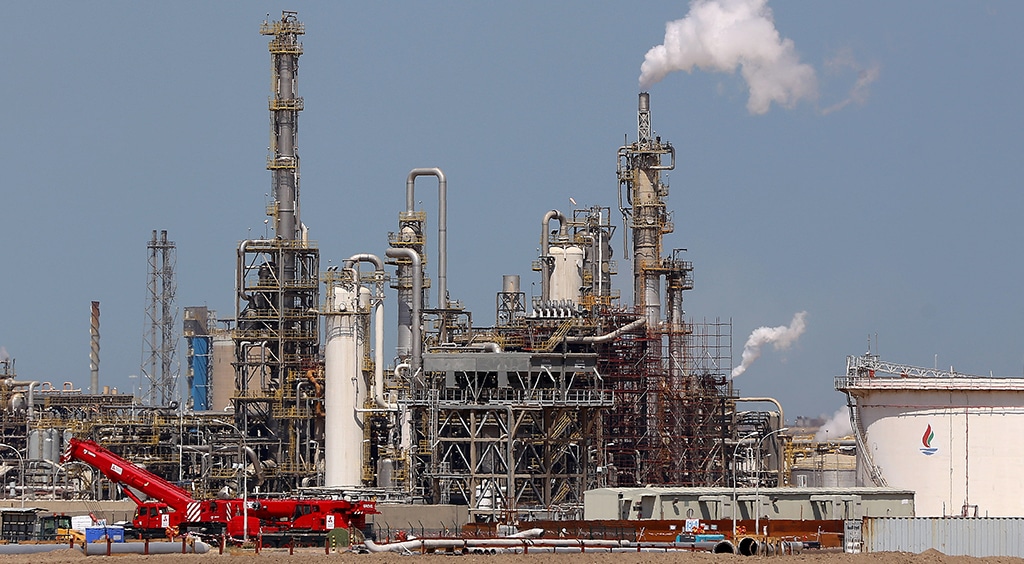By Khaled Al-Abdulhadi
KUWAIT: Kuwait is taking significant steps to increase refined oil production at the Al-Zour refinery while simultaneously reducing oil production to maintain a balance. This expansion of oil production is apparent through the planned opening of the refinery in late 2022 and the establishment of the first offshore oil production. Let’s examine how these actions can benefit Kuwait and why increasing refined oil production and decreasing dependency on exporting crude oil are advantageous.
The process of refining oil, as described by Jean-Pierre Favennec in a publication by Springer, involves “the separation of crude oil into different fractions, which serve as the basis for manufacturing finished products. This process improves the quality of some cuts, transforms heavy cuts into lighter ones, and prepares finished products through blending.” Refined oil can be converted into various products such as motor gasoline, jet fuel, diesel fuel, fuel oil, lubricants and liquefied petroleum gases.
In 2022, Kuwait’s crude oil exports rebounded to 1.87 million barrels per day after a dip in 2021 due to the COVID-19 pandemic, when it stood at 1.74 million barrels per day. This increase continued until a decision was made in April, after which the previous oil minister stated that “Kuwait is committed to the cutting decisions, in addition to its voluntary reduction by 128,000 bpd, to produce 2,548,000 bpd as of June.” OPEC+ has been consistently reducing crude oil production to maintain stable oil prices.
Oil analyst Ahmad Karam explained in June that “the decision to extend production cuts until the end of 2024 supports the stability of oil prices at the required levels.” In response to the European embargo on Russian oil exports, Kuwait’s oil sector is planning an expanded export strategy, focusing on increasing fuel exports to Europe. Russia previously supplied around half of Europe’s diesel imports, approximately 750,000 barrels per day. Both the Kuwait Petroleum International Company, a subsidiary of the Kuwait Petroleum Corporation, and the global marketing sector of the Kuwait Petroleum Corporation are prepared to sell these new oil quantities in the European market.
Kuwait is expected to gain a larger market share in Europe, particularly due to the growth in refining production and the availability of low-sulfur fuel oil in its reserves. This low sulfur characteristic facilitates the refining of crude oil, which in turn benefits the production of refined oil. Reports indicate that Kuwait is set to achieve a refining capacity of 1.4 million barrels per day next year, making it the second-largest in refining capacity in the Middle East, behind only Saudi Arabia.
Fuel exports are anticipated to increase to 910,000 barrels per day, a significant jump from the current exports of 290,000 barrels. This represents a substantial move towards Kuwait’s self-reliance and diversification of its economy. Kuwait is gradually transitioning to a multi-resource advanced economy, as evidenced by the recent IMF report, which indicated a 4 percent growth in non-oil GDP in 2022.



